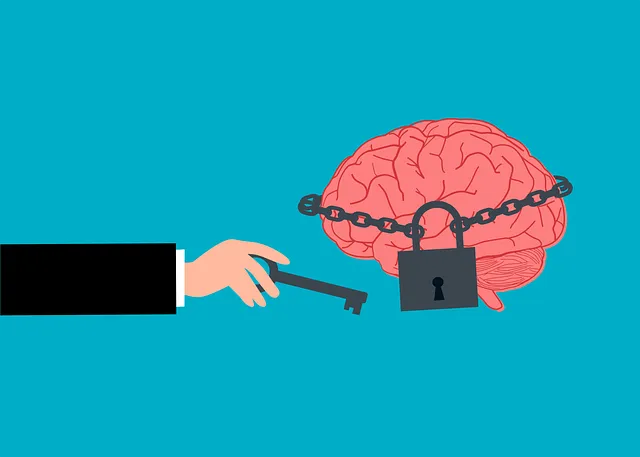Public awareness campaigns, including those by Kaiser Wheat Ridge for mental health, effectively bridge communities to essential services through early intervention, reducing stigma, and encouraging help-seeking behaviors. Tailored strategies based on demographic factors and local partnerships reach diverse populations, while strategic communication simplifies complex topics like mental illness using analogies, personal stories, and digital tools. Digital platforms and interactive workshops dispel stigma, normalizing mental health conversations and empowering individuals with coping mechanisms. Measuring success involves tracking changes in attitudes, behaviors, and knowledge related to mental wellness through surveys, podcast downloads, and healthcare provider training completion rates.
Public awareness campaigns play a pivotal role in shaping societal perceptions and behaviors, especially regarding mental health. This article delves into the development of impactful initiatives, exploring their potential to reach and influence diverse communities. We examine the process of tailoring campaigns for specific audiences, such as those offered by Kaiser in Wheat Ridge, focusing on accessible communication strategies. By combining traditional and digital technologies, these campaigns can effectively promote mental well-being. Through case studies, we’ll demonstrate how success is measured and evaluated, highlighting best practices for organizations like Kaiser aiming to create positive change.
- Understanding Public Awareness Campaigns: Their Role and Impact in Society
- Identifying Target Audiences for Effective Mental Health Outreach (Focus on Wheat Ridge)
- Creating Engaging Content: Strategies for Communicating Complex Issues Simply
- Leveraging Technology: Digital Tools for Amplifying Mental Health Messages
- Measuring Success: Evaluating the Effectiveness of Public Awareness Campaigns in Kaiser's Wheat Ridge Services
Understanding Public Awareness Campaigns: Their Role and Impact in Society

Public awareness campaigns play a pivotal role in shaping societal perceptions and behaviors, acting as catalysts for positive change. These initiatives are designed to educate and engage the public on various issues, with a particular focus on health and well-being. In the context of mental healthcare, understanding the power of these campaigns is essential. They serve as a bridge between communities and critical services, such as those offered by facilities like Kaiser in Wheat Ridge, where specialized mental health services are provided.
Awareness programs can significantly impact community mental wellness by promoting early intervention, reducing stigma, and encouraging individuals to seek support. For instance, campaigns that emphasize the importance of mental wellness coaching can boost confidence and self-care practices among diverse populations. Incorporating cultural sensitivity in mental healthcare practice ensures these campaigns resonate with different communities, fostering inclusive access to resources and services tailored to their unique needs.
Identifying Target Audiences for Effective Mental Health Outreach (Focus on Wheat Ridge)

In Wheat Ridge, where Kaiser offers mental health services, effective outreach strategies require a deep understanding of target audiences. The first step is to segment the community based on demographics, age groups, and unique challenges. For instance, young adults may be more receptive to digital platforms and social media campaigns promoting stress management techniques like Anxiety Relief and Mind Over Matter Principles. On the other hand, older residents might prefer in-person workshops or support groups that foster Inner Strength Development. By tailoring messages and choosing appropriate communication channels, mental health organizations can significantly enhance their outreach impact.
Additionally, local partnerships with schools, community centers, and faith-based groups are crucial. Collaborating with these entities allows for a more comprehensive reach, ensuring that vulnerable populations, such as students dealing with academic pressures or individuals facing social isolation, receive the support they need. Incorporating feedback from the community and adapting campaigns accordingly is essential to building trust and fostering open dialogue about mental health in Wheat Ridge.
Creating Engaging Content: Strategies for Communicating Complex Issues Simply

Creating effective public awareness campaigns requires a strategic approach to communication, especially when addressing complex issues like mental health. Organizations like Kaiser, known for offering mental health services in Wheat Ridge, understand that breaking down intricate topics into digestible content is key to engagement. One of the primary challenges in mental health advocacy is reducing stigma associated with mental illness. By employing creative strategies, campaigns can simplify discussions around Mental Illness Stigma Reduction Efforts, making them accessible and relatable to diverse audiences.
Using analogies, personal stories, and simple language can help demystify concepts. For instance, social media platforms have been utilized for spreading awareness through impactful videos and interactive posts that offer tips on Stress Management Workshops within the community. Organizations also facilitate Social Skills Training programs, which empower individuals with coping mechanisms and foster an environment of support, thereby normalizing conversations around mental health. These initiatives ensure that campaigns are not only informative but also inclusive, encouraging open dialogue and fostering a sense of community among those facing similar challenges.
Leveraging Technology: Digital Tools for Amplifying Mental Health Messages

In today’s digital era, leveraging technology has become a powerful tool for public awareness campaigns, especially when addressing mental health issues in communities like Wheat Ridge where Kaiser offers its services. Online platforms and social media channels provide an unprecedented opportunity to reach a vast audience and dispel stigma surrounding mental wellness. Through interactive content, live streams, and virtual workshops, organizations can educate folks on various stress reduction methods and burnout prevention techniques.
Digital tools allow for personalized experiences, catering to individual needs and preferences. For instance, mobile apps focused on mindfulness and meditation can guide users through conflict resolution techniques tailored to their unique challenges. By combining traditional awareness campaigns with innovative digital strategies, communities can effectively promote mental health services and foster a culture of open dialogue around these critical topics.
Measuring Success: Evaluating the Effectiveness of Public Awareness Campaigns in Kaiser's Wheat Ridge Services

Measuring success is a critical aspect of evaluating the effectiveness of public awareness campaigns, such as those offered by Kaiser in Wheat Ridge for their mental health services. Beyond gauging initial reach and exposure, campaign assessments should focus on changes in attitudes, behaviors, and knowledge related to mental wellness. This can involve pre- and post-campaign surveys, focusing on questions like “How likely are you to seek help for emotional struggles?” or “Do you feel more equipped to support friends/family with mental health challenges?”
Integrating metrics from the Mental Wellness Podcast Series Production and Healthcare Provider Cultural Competency Training initiatives can provide a holistic view of campaign impact. For instance, tracking podcast downloads and training completion rates offers insights into public engagement and healthcare provider preparedness in addressing mental health concerns. This multifaceted approach ensures that awareness campaigns like Kaiser’s Wheat Ridge Services are not only reaching their audience but also driving meaningful changes in emotional intelligence and mental wellness support accessibility.
Public awareness campaigns play a pivotal role in shaping societal perceptions and behaviors, especially regarding mental health. As demonstrated by Kaiser’s initiatives in Wheat Ridge, effectively targeting audiences through engaging content and leveraging technology can significantly impact community well-being. By measuring success through evaluation, organizations like Kaiser can ensure their efforts resonate, providing vital support to those seeking mental health services in Wheat Ridge and beyond. This evidence-based approach not only raises awareness but also fosters a culture of care and understanding.






